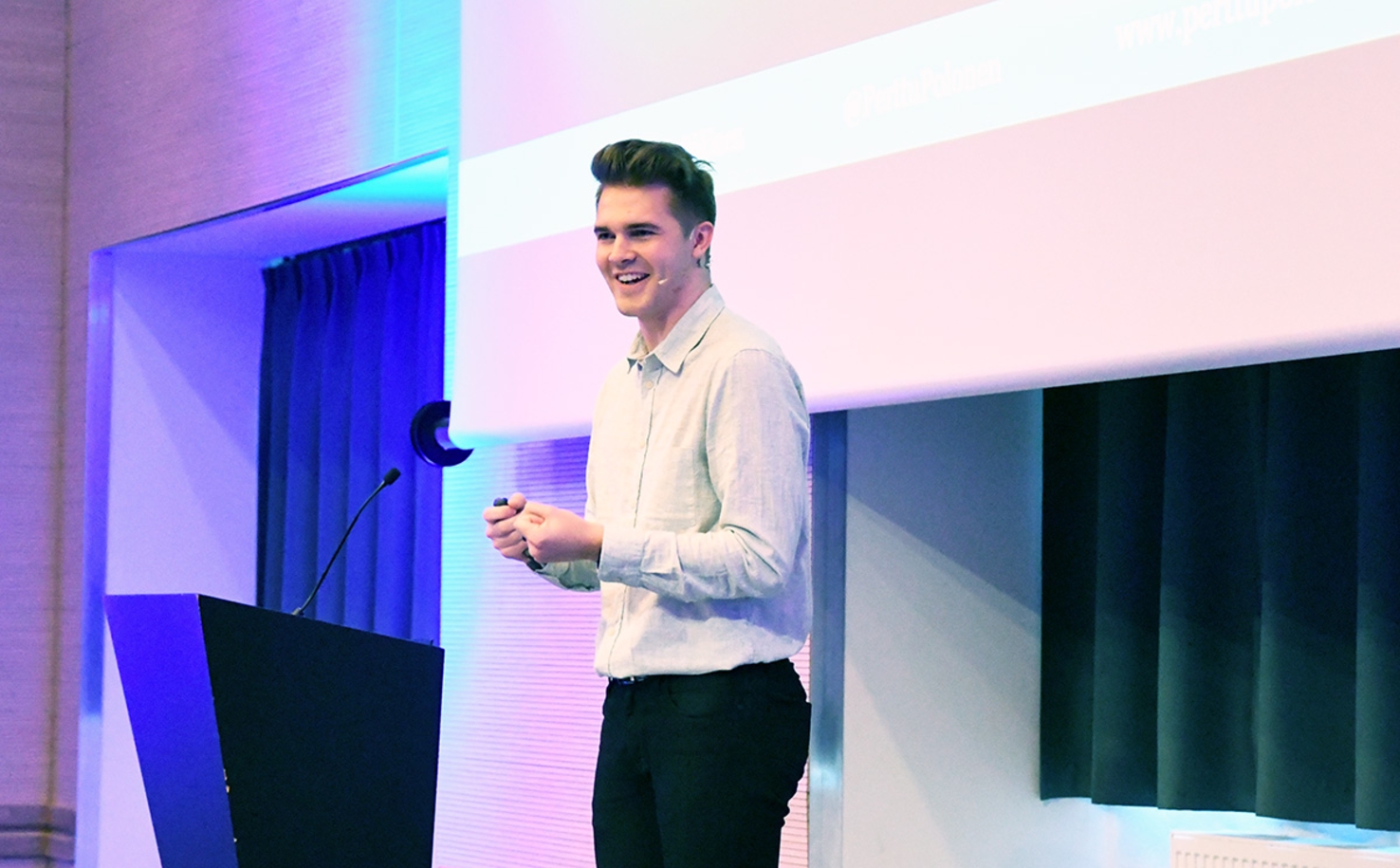Perttu Pölönen at the Laurea Grand Alumni Evening: “When nothing is certain, anything is possible”
The keynote speaker at the Laurea Grand Alumni Evening was Perttu Pölönen, a young inventor and composer.

Laurea graduates once again gathered to the Grand Alumni Evening, held this year at the elegant venue of Clarion Hotel Helsinki on 7th May. The hotel ballroom was packed as more than 170 alumni had registered to the event.
This year, the keynote speaker of the evening was Perttu Pölönen, 24, who has been called a super-highbrow and a genius. At the age of 15, Pölönen made the headlines with his MusiClock invention, and despite his young age, his career so far has already presented him with a wealth of experiences. Pölönen is a composer and a Sibelius Academy graduate, and he has also studied in Silicon Valley and graduated from the Singularity University at the NASA Research Park in California. While at NASA, Pölönen co-founded 360ed, a non-profit that develops teacher education in Myanmar through Virtual Reality.
Co-existing with information technology
Pölönen encourages his audiences to be open-minded and challenge themselves. He stresses that the ever accelerating pace of development in information technology calls for new ways of thinking and the development of future education.
“Currently, we are in the middle of information technology transformation, and we need to figure out what it requires of us humans. We should understand what the value of being human is. Computers are already capable of performing so many tasks that we must dig deeper to identify what kind of competence we ourselves can offer. What will the future employee be like? Do we know what truly distinguishes us from machines? How does a computer solve a problem, and how do you do it?”
Pölönen gives examples to illustrate his thinking:
“A computer is capable of understanding that there are six objects in a glass. However, it is not capable of comprehending what it means that there are many objects in the glass. By contrast, a human being can estimate how many is many.”
With this example, Pölönen shows that the strength of humans compared to computers is their very ability to understand cultural, social and historic contexts, for example.
“We will never be as analytical or logical as computers, so we should focus on drawing from other strengths of ours. It is not about pitting computers against humans, and there is no need for us to be afraid of computers, since they facilitate our lives in many ways. It is a matter of us learning to co-exist with computers.”
“Recognise your competence”
Investors are advised to diversify their invested funds in order to minimise risks. Pölönen advises us to apply the same principle to our own competence and education.
“If you specialise in one thing only, it is possible that in the future, your field has changed so much that your special expertise is no longer needed. You will be left out in the cold. However, if you diversify your competence and build experience in a number of different fields, you are more likely to possess relevant competence in the transformed world of work of future as well.”
In light of this, Pölönen extensively covers future competence needs and education in his talks. He has drawn up a twelve-step agenda for the future, which includes areas of expertise that are key in terms of success in the future. The agenda highlights personal traits, such as curiosity, empathy and perseverance, as well as, on the other hand, media literacy, problem-solving skills and communications competence.
“People often construct their ego almost solely on their profession, and when asked who they are, they say they are teachers or police officers, for example. Instead, I would like to know what the profession they presented actually means – what skills are required and what the ultimate purpose of the job is. For example, the duty of a police officer is to ensure that life is safe for people, whereas a teacher uses their communication skills to explain difficult concepts to children. In order to understand one’s own worth, an individual must know what their skills are.”